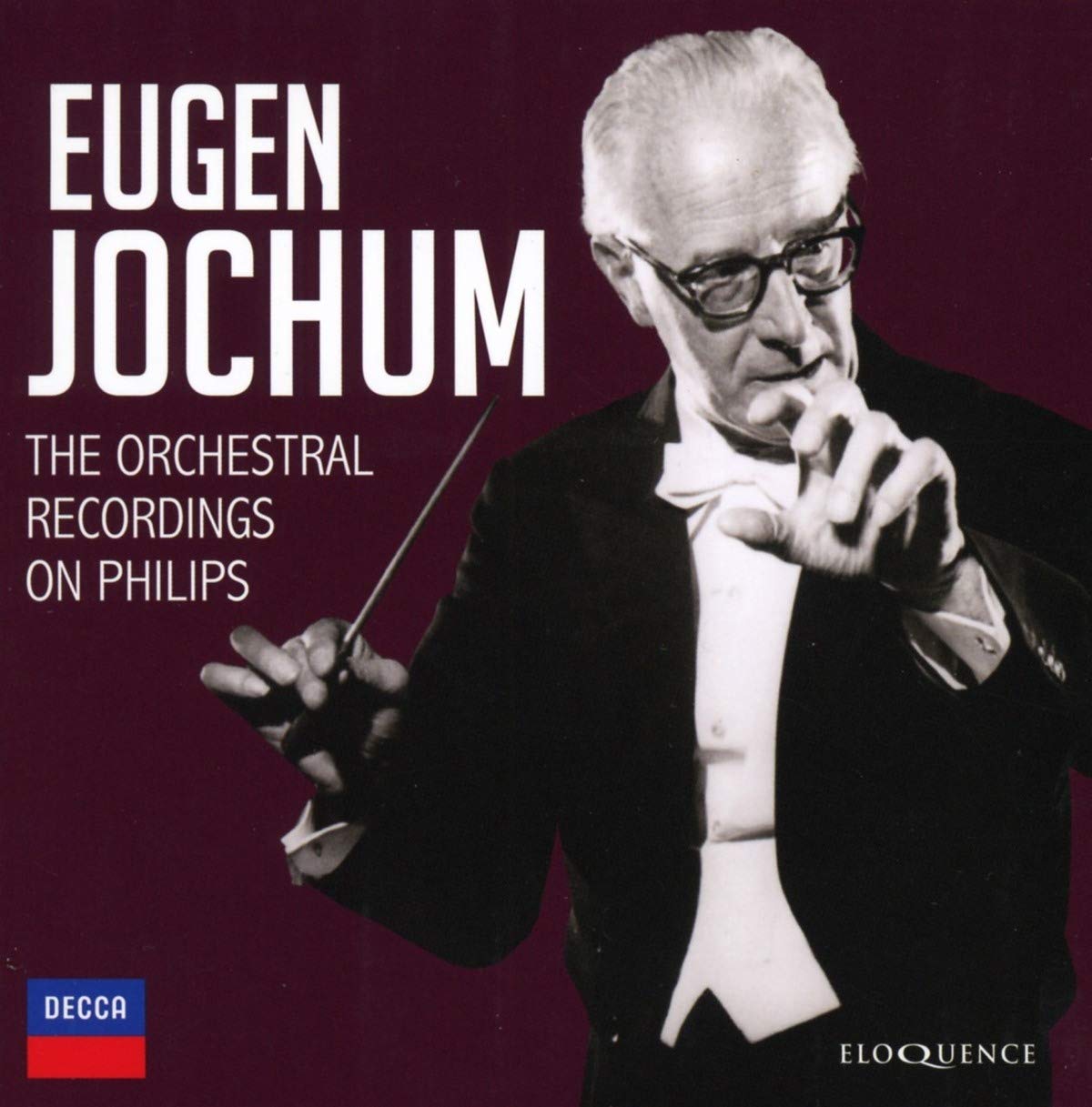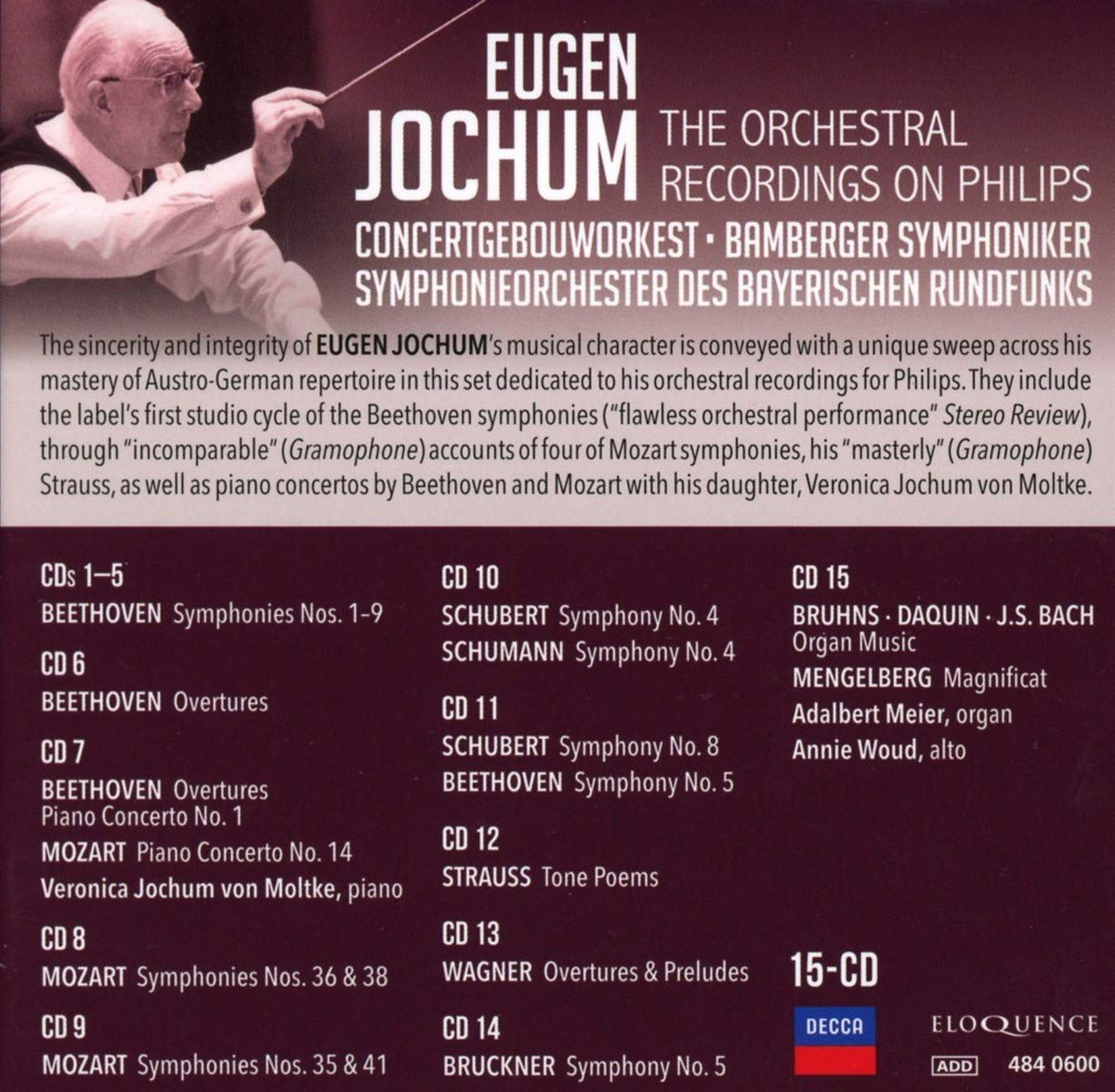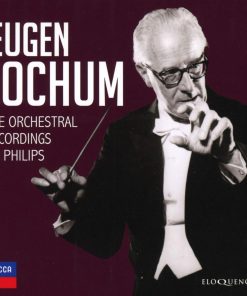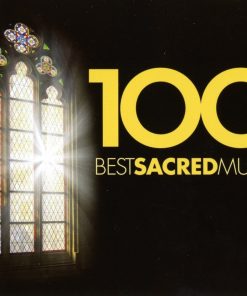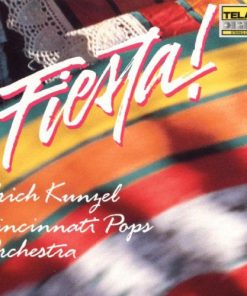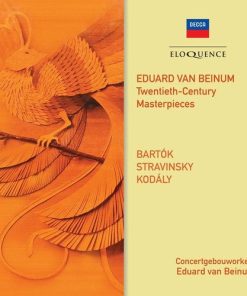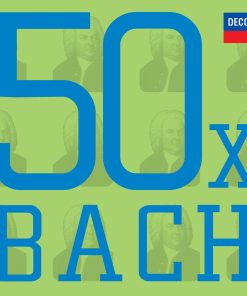Eugen Jochum – The Orchestral Recordings on Philips (15 CDs) DECCA
$ 94,99 $ 47,49

According to one former violist in the Concertgebouw Orchestra, Eugen Jochum was the type of conductor ‘who doesn’t “put on” spectacular performances, but whose music-making always bears the stamp of honesty. He is enthusiastic during a concert and also conveys his intentions to the orchestra without any affectation’.
The sincerity and integrity of Jochum’s musical character is conveyed with a unique sweep across his mastery of Austro-German repertoire – operatic as well as symphonic music – in this new Eloquence Classics box set dedicated to his recordings for the Dutch Philips label. The first five discs present the second of the conductor’s complete cycles of Beethoven symphonies, made in the late 1960s. In its plain-spoken but beautifully recorded and played way, this Amsterdam cycle stands the test of time against his earlier Berlin and later London cycles, not least thanks to the particularly harmonious relationship cultivated by Jochum with the great Dutch ensemble (he shared the chief conductorship with Bernard Haitink for three years).
These Philips recordings continue with more Beethoven, a collection of overtures, several receiving their first international release on CD, and a Fifth Symphony from Berlin in 1951. Other notable rarities are saved for the last disc: a solo-vocal Magnificat by Rudolf Mengelberg (cousin of the conductor Willem), recorded in Jochum’s first studio sessions with the Concertgebouw in 1952, and a short sequence of organ works played by Adalbert Meier. This formed Side 4 of the original release of Bruckner’s Fifth Symphony, recorded live at the Rococo splendour of the basilica attached to the Benedictine monastery of Ottobeuren in Bavaria, which was celebrating the 1200th anniversary of its foundation in 1964 when the Concertgebouw gave a performance there unique even in Jochum’s distinguished Bruckner discography for its radiance as well as its unerring sense of pulse.
At the centre of the new Eloquence box, Jochum’s often-underrated way with Wagner and Strauss is well represented by his Philips recordings of overtures and tone-poems (including two versions each of Don Juan and Till Eulenspiegel, from 1952 and stereo remakes from 1960). There are four grand and splendid accounts of late Mozart symphonies, as well as a pair of piano concertos – by Beethoven and Mozart – recorded with the Bamberg SO and his daughter Veronica, who also contributes to Niek Nelissen’s fascinating note for this unrivalled collection of her father’s work.
Fast Shipping and Professional Packing
Due to our longstanding partnership with UPS FedEx DHL and other leading international carriers, we are able to provide a range of shipping options. Our warehouse staff are highly trained to pack your goods exactly according to the specifications that we supply. Your goods will undergo a thorough examination and will be safely packaged prior to being sent out. Everyday we deliver hundreds of packages to our customers from all over the world. This is an indication of our dedication to being the largest online retailer worldwide. Warehouses and distribution centers can be located in Europe as well as the USA.
Orders with more than 1 item are assigned processing periods for each item.
Before shipment, all ordered products will be thoroughly inspected. Today, most orders will be shipped within 48 hours. The estimated delivery time is between 3-7 days.
Returns
The stock is constantly changing. It's not entirely managed by us since we are involved with multiple parties such as the factory and our storage. The actual stock can fluctuate at any time. Please understand it may happen that your order will be out of stock when the order is placed.
Our policy is valid for 30 days. If you haven't received your product within 30 days, we're not able to issue either a return or exchange.
You are able to return a product if it is unused and in the same condition when you received it. It must also still remain in the original packaging.
